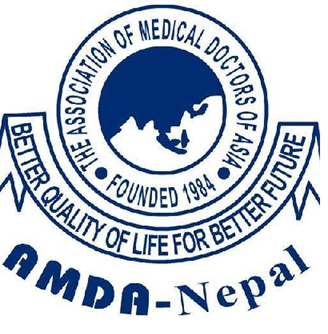Overview
Diploma in Pharmacy at Pashchimanchal Swastha Bigyan Pratisthan (PSBP), Butwal
Pashchimanchal Swastha Bigyan Pratisthan (PSBP), located in Jeetgadhi, Butwal-13, Rupandehi, Nepal, offers a Diploma in Pharmacy program affiliated with the Council for Technical Education and Vocational Training (CTEVT). This three-year program prepares students for employment in the pharmacy sector through structured academic learning and practical application. It is designed for individuals who have passed the Secondary Education Examination (SEE) and qualified through the CTEVT entrance exam.
The course provides 40 seats, including 4 scholarship seats, with the fee structure determined by CTEVT. It focuses on pharmaceutical science fundamentals, medicine dispensing, and drug safety, building the knowledge and skills needed in public and private healthcare settings.

Curriculum Details
The Diploma in Pharmacy follows the official CTEVT curriculum, structured in an annual evaluation format over three academic years. The coursework includes both theoretical foundations and hands-on practice, helping students build competencies in areas such as:
-
Pharmaceutical chemistry
-
Pharmacology and toxicology
-
Pharmacognosy
-
Pharmaceutics
-
Pharmacy law and ethics
-
Community and hospital pharmacy
-
First aid and public health
-
Drug management and inventory
Each year includes classroom-based instruction, laboratory sessions, and field exposure, equipping students to handle real-life responsibilities.
Objectives
The course aims to produce skilled pharmacy assistants who can:
-
Assist in the dispensing and management of medicines
-
Understand basic principles of pharmacology and pharmaceutics
-
Provide accurate information to patients about medication use
-
Manage drug inventory and records
-
Comply with legal and ethical aspects of pharmaceutical services
Scope
Diploma in Pharmacy program graduates are eligible to register as Pharmacy Assistants in Nepal. They may serve in:
-
Community pharmacies
-
Hospitals and clinics
-
Health posts and rural outreach centers
-
Non-governmental health programs
-
Pharmaceutical companies and wholesalers
Learning Outcomes
Upon completion of the course, students will be able to:
-
Understand the role and responsibility of a pharmacy assistant
-
Maintain drug records, storage, and labeling procedures
-
Counsel patients on dosage, safety, and potential interactions
-
Follow ethical practices in pharmacy operations
-
Collaborate with healthcare professionals to support treatment
Skill Development Modules
Key practical competencies developed throughout the program include:
-
Accurate medication dispensing
-
Use of pharmaceutical equipment and tools
-
Management of prescriptions and refills
-
Communication with patients and healthcare workers
-
Field-level drug supervision and reporting
These modules are delivered through structured lab activities, supervised internships, and scenario-based practice.
Teaching Methodology
The teaching approach emphasizes student participation, practical observation, and skill-building through:
-
Regular lectures and note-based instruction
-
Demonstrations and group-based laboratory work
-
Roleplay and simulation for pharmacy interactions
-
Hospital and community-based field placements
-
Assessments through written, oral, and practical exams
The annual system allows students to learn progressively and retain knowledge through consistent evaluation and feedback.
Admission Requirements
Interested candidates must:
-
Pass the SEE (Secondary Education Examination) or equivalent
-
Apply and qualify through the CTEVT entrance examination
-
Submit relevant documents within the admission period
-
Meet any additional criteria set by the institution or CTEVT
Career Opportunities
Diploma graduates may find roles such as:
-
Pharmacy Assistant in hospitals, clinics, or retail pharmacies
-
Health worker in the public health or NGO sectors
-
Drugstore manager or medicine inventory supervisor
-
Sales representative in pharmaceutical companies
-
Further studies in Bachelor-level pharmacy or health sciences
These roles contribute to the growing need for trained pharmacy personnel across urban and rural healthcare systems in Nepal.
Scholarships and Financial Aid
PSBP reserves 4 scholarship seats as per CTEVT policy. These are generally allocated to:
-
Students from marginalized backgrounds
-
Applicants with high entrance performance
-
Individuals meeting special inclusion or equity criteria
Scholarship eligibility is subject to the guidelines published by CTEVT annually.
Why Choose This Course?
This program suits those interested in health service delivery, pharmaceutical operations, and patient support. It helps students gain employable skills while opening up further pharmacy or health science education opportunities.
The curriculum supports direct application of knowledge and builds confidence through practical involvement, making it a preferred choice for many SEE graduates interested in pharmacy.
Conclusion
The Diploma in Pharmacy program at PSBP Butwal offers structured, skill-focused education in pharmaceutical science under CTEVT affiliation. With a combination of classroom learning and real-world training, the course enables students to develop into qualified pharmacy assistants capable of contributing to Nepal’s healthcare system. It is a strong stepping stone for those seeking a career in pharmacy services or health-related fields.



















